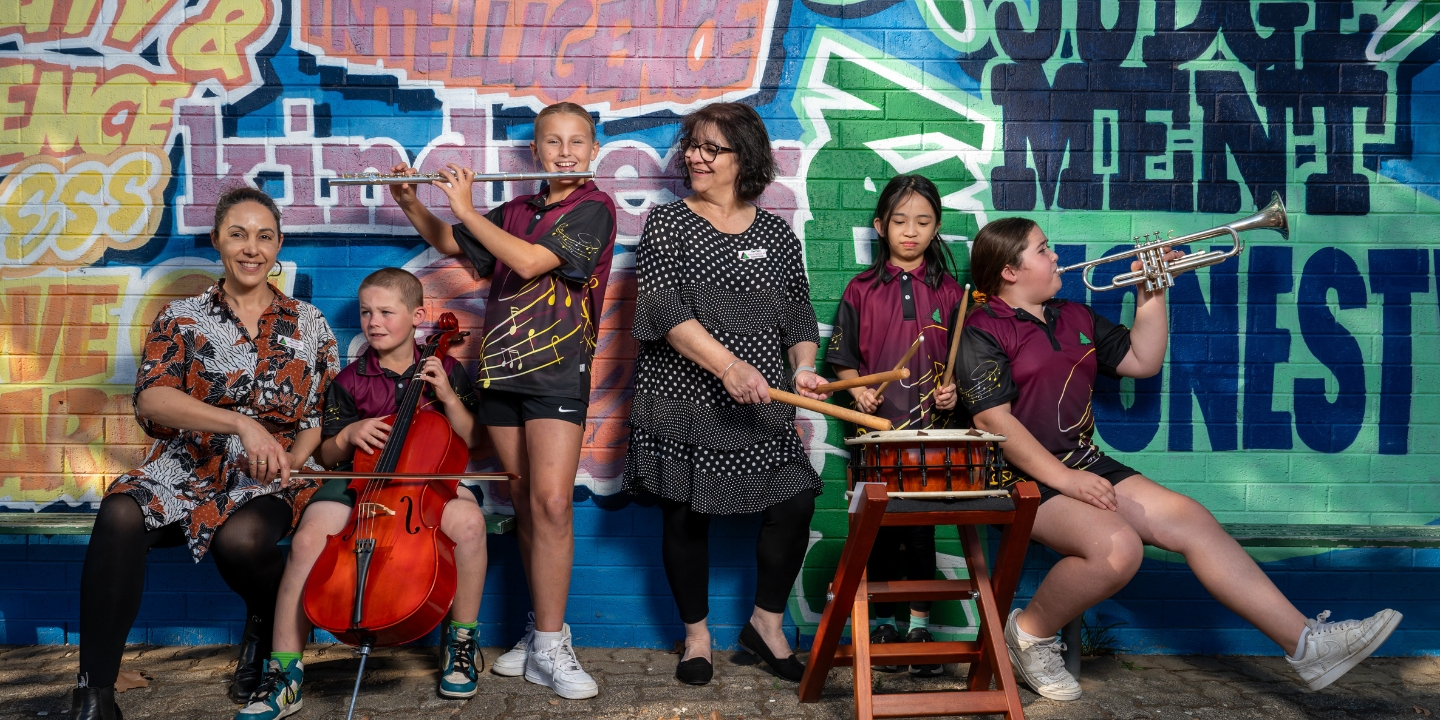
Teacher survey a powerful instrument to boost music education
ACER news 20 Aug 2024 5 minute readSelected New South Wales (NSW) government primary schools will have the chance to influence the tone of music education in their state by responding to a timely survey.
Educators in 100 schools – selected as representative of the 1600 government primary schools in NSW – will be invited to participate as part of a research project to gather an up-to-date picture of the key characteristics of primary teachers who deliver music learning in NSW.
It is looking at the extent and quality of music education being delivered and any impacts this has on students and learning.
Music Education: Right from the Start (a national, collaborative initiative led by Alberts | The Tony Foundation) commissioned the Australian Council for Educational Research (ACER) to conduct the research to provide contemporary evidence to a NSW Parliamentary Joint Select Committee.
The committee is inquiring into arts and music education in the state, and looking at how schools and teachers can be better supported to provide it.
A submission to the inquiry by Music Education: Right from the Start (the Music Education initiative) notes a ‘paradox’ in Australian education, with schools and teachers under pressure to devote their attention to a small number of key learning areas, while educational leaders and curricula emphasise the importance of a holistic education.
‘Quality music education can confidently speak – backed by the research – to all the major challenges confronting contemporary schooling: academic attainment, retention, engagement and participation, wellbeing and personal and social development,’ the submission says.
The new research is a collaborative endeavour, led by Music Education: Right from the Start and supported by the NSW Department of Education and the NSW Teachers Federation. It is funded jointly by Sound NSW and Alberts.
ACER’s survey has already been conducted in South Australia, with the Music Education initiative planning to replicate it in other jurisdictions to build a national picture of music education delivery.
In South Australia, more than 90% of surveyed teachers agreed that music learning had a positive impact on student experiences. This included supporting literacy and numeracy skills and reducing stress.
Following the release of a report including the findings in May this year, the South Australian Government announced it would expand music education in schools significantly.
What South Australian teachers said about music education
‘Setting the Tempo’ was commissioned by the Music Education initiative and supported by the South Australian Department for Education and the Day Family Foundation.
Nearly all surveyed teachers (97%) either strongly agreed or agreed that music education improves learning capacity, social skills and wellbeing, supported reading and numeracy skills, reduced stress and anxiety and increased attention, stamina and focus.
Noting that 42% of respondents had been teaching for more than 20 years, 17% said there was no music content in their education to become a teacher, while 44% said they received 9 hours or less over their whole course.
As well as investing in more instruments and designated music spaces at schools, the South Australian Government committed to extra training. It recently announced $7.5 million in funding to expand music education over the next 3 years as part of its 10-year Music Education Strategy for the state.
Learn more
Read the Music Education: Right from the Start Primary Teachers Survey – South Australia report.
See the launch of the Setting the Tempo report and the South Australian Government response
See how the brain responds to musical stimulation (posted on the Music Education: Right from the Start website)